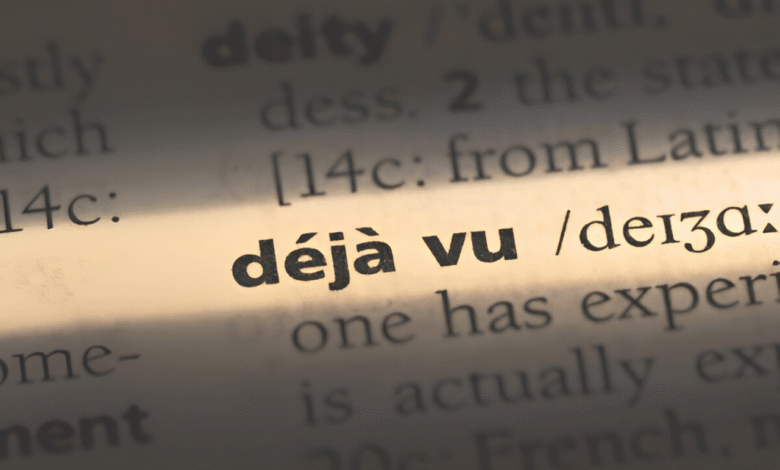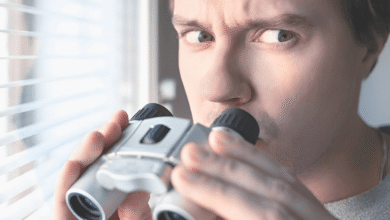The Strange Science Behind Déjà Vu and What It Really Means
Déjà vu explained Discover the science behind why we experience this eerie phenomenon and what it reveals about your brain's memory system.

Déjà vu is one of the most intriguing and mysterious experiences of the human mind a fleeting yet powerful sensation that the present moment has happened before, even when logic says otherwise. This phenomenon, whose name comes from the French term meaning “already seen,” has fascinated scientists, psychologists, and philosophers for centuries. While some dismiss it as a simple brain glitch, others believe it holds deeper clues about memory, perception, and even the nature of consciousness itself. But what really causes déjà vu, and why does it feel so uncannily real?
Despite being incredibly common studies suggest that up to 70% of people experience it at least once it remains poorly understood. Some theories point to neurological misfires, while others explore connections to stress, memory errors, or even metaphysical explanations. Whether it’s a trick of the mind or something more profound, it challenges our understanding of how the brain processes reality. We’ll dive into the latest scientific research, debunk myths, and uncover what this strange phenomenon might truly reveal about the human brain.
The Strange Science Behind Déjà Vu and What It Really Means
What Is Déjà Vu?
Déjà vu (French for “already seen”) is the unsettling feeling that a current experience has happened before, even when logic says otherwise. This phenomenon can last just a few seconds but leaves a lasting impression. Researchers categorize it into different types, including déjà vécu (already lived through), déjà senti (already felt), and déjà visité (already visited). The experience is most common in young adults and tends to decrease with age, suggesting a possible link to brain development. Some experts believe it arises from a temporary mismatch in memory processing, where the brain mistakenly interprets a new situation as a familiar one.
The Neurological Explanation
One of the leading scientific theories suggests that déjà vu occurs due to a slight delay in neural transmission. When information reaches one part of the brain faster than another, the brain may perceive the delayed signal as a memory rather than a Real-time experience. This theory is supported by studies on epilepsy patients, who often report déjà vu before seizures. Brain scans reveal that the temporal lobe, particularly the hippocampus (responsible for memory formation), plays a key role. Electrical stimulation in this area can trigger déjà vu-like sensations, reinforcing the idea that it’s a neurological glitch. However, this doesn’t explain why people without epilepsy also experience it.
Memory-Based Theories
Another explanation ties déjà vu to memory recall errors. According to this theory, a new scene or event may share similarities with a forgotten memory, causing the brain to misfire. For example, walking into a café with a specific layout might unconsciously remind you of a place you visited years ago, creating a false sense of recognition. Some researchers propose that dual-processing theory is at play—where two cognitive processes (familiarity and recall) momentarily fall out of sync. This mismatch tricks the brain into believing the present moment is a recollection rather than a fresh experience.
The Role of Stress and Fatigue
Psychological factors like stress, fatigue, and anxiety may increase the likelihood of déjà vu. When the brain is overworked, it can struggle to process information efficiently, leading to memory lapses and perceptual errors. Studies show that people experiencing high stress or sleep deprivation report more frequent déjà vu episodes. This connection suggests that it might be a sign of the brain’s overload response, scrambling to make sense of fragmented information. In some cases, it could even be a mild form of dissociation, where the mind temporarily detaches from reality.
Paranormal and Metaphysical Theories
Beyond science, some theories venture into the paranormal. A popular idea is that déjà vu is a glimpse into a past life or a parallel universe where the event actually occurred. While intriguing, there’s no scientific evidence to support this. Another speculative theory is precognitive dreaming, where a person dreams of an event before it happens, making it feel familiar when it occurs. However, most scientists attribute this to confirmation bias—people remember the hits and ignore the misses.
Can Déjà Vu Be Induced?
Interestingly, researchers have found ways to trigger déjà vu in lab settings. Using hypnosis, virtual reality, and split-second image flashes, scientists can recreate the sensation artificially. These experiments support the idea that déjà vu is a memory-processing error rather than a mystical phenomenon. One study used virtual reality environments to show participants two similar but not identical scenes. When exposed to the second scene, many reported déjà vu, confirming that subtle similarities between experiences can trick the brain.
When Should You Worry About Déjà Vu?
Intense Episodes
Occasional is normal, but if you experience it several times a week or with overwhelming intensity, it could indicate neurological irregularities.
Accompanied by Seizures
If déjà vu occurs alongside twitching, confusion, or blackouts, it may be linked to temporal lobe epilepsy and requires neurological evaluation.
Memory Problems
When déjà vu is followed by memory lapses, difficulty recalling events, or extreme disorientation, it could suggest conditions like dementia or brain injury.
Unusual Sensory Experiences
If you see, hear, or feel things that aren’t there during or after déjà vu, it might point to migraine auras, schizophrenia, or other neurological disorders.
Sudden Onset After Head Trauma
If déjà vu starts after a concussion or brain injury, it could signal post-traumatic epilepsy or structural brain damage needing medical attention.
Emotional Distress
While stress can trigger déjà vu, persistent episodes causing severe anxiety, panic attacks, or dissociation may require psychological support.
Read More: The Mandela Effect Explained: Why Some People Remember Fake Memories
Conclusion
It remains one of the most fascinating mysteries of human cognition, blurring the lines between memory, perception, and reality. While science has uncovered potential explanations from temporal lobe glitches to memory processing errors the experience still carries an air of the unexplained. What makes déjà vu so compelling is its universality nearly everyone has felt that eerie sense of familiarity, yet no single theory fully captures its essence. As neuroscience advances, we may finally unravel why our brains occasionally trick us into believing the present is a replay of the past.
Whether viewed as a neurological hiccup or a glimpse into the brain’s complex wiring, it reminds us how much we still don’t understand about consciousness. It challenges our assumptions about time, memory, and even the nature of reality itself. Until researchers unlock its secrets, this phenomenon will continue to captivate and puzzle us a fleeting mental quirk that leaves us questioning what’s real and what’s merely a trick of the mind.
FAQs
What exactly is déjà vu?
It is the sudden, unsettling feeling that a current experience has happened before, despite knowing it’s impossible.
Is déjà vu a sign of a medical problem?
While usually harmless, frequent déjà vu episodes especially with seizures or confusion could indicate neurological issues like temporal lobe epilepsy.
Why does déjà vu happen more often when I’m tired?
Fatigue and stress disrupt normal brain processing, increasing the likelihood of memory misfires that trigger déjà vu sensations.
Can science explain why we experience déjà vu?
Leading theories suggest it’s caused by temporary delays in memory processing or the brain mistaking new experiences for stored memories.
Does everyone experience déjà vu?
Studies show about 60-70% of people have had it, with occurrences peaking in young adulthood before declining with age.











